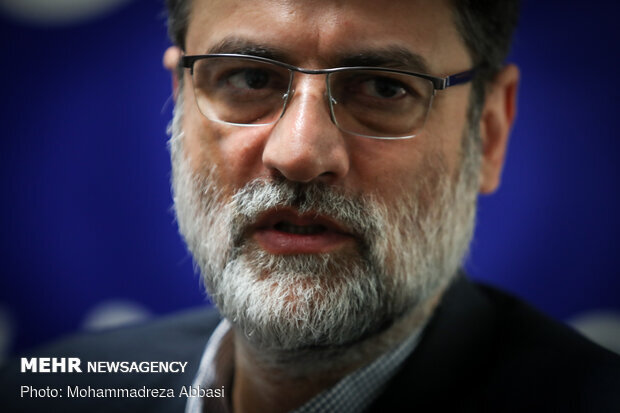Parliamentary approval sent a message to JCPOA parties: top MP

TEHRAN — The first deputy speaker of the Iranian Parliament has said the passing of the strategic action plan for the lifting of sanctions showed that Iran’s precondition for observing its nuclear obligations is that the other parties to the nuclear deal must fulfill their commitments.
In an interview with Mehr published on Sunday, Amir-Hossein Ghazizadeh Hashemi also said no one is opposed to negotiating, communicating with the world, and resolving the existing issues through dialogue.
Iranian Parliament on Tuesday passed the outlines of a plan aimed at lifting the anti-Iran sanctions and protecting the rights of the Iranian nation.
According to the 9-article bill, the Atomic Energy Organization of Iran (AEOI) will be required to produce and store at least 120 kilograms of enriched uranium with 20 percent purity at the Fordow nuclear facility every year, and to fulfil the country’s peaceful industrial demands with uranium enriched above 20%.
The bill became law as the oversight Guardian Council approved it by asking the parliament to make some amendments to it. It will oblige the AEOI to increase the monthly output of enriched uranium for various peaceful purposes with different purity levels by at least 500 kg.
“Iran fulfilled its obligations under the agreement; however, it was the European parties who failed to fulfill their commitments. Therefore, staying in such a situation is, strategically, to the detriment of national interests and authority of the Islamic Republic of Iran,” Ghazizadeh Hashemi remarked.
He said the passing of the action plan conveyed a message to the European parties of the JCPOA, the United States, and even Iran’s partners, China and Russia.
Iran’s message is that if the Europeans fail to live up to their commitments, Iran will not accept any restriction in the context of JCPOA, the top MP added.
The remarks come while the Rouhani administration has criticized the new action plan, saying it may create problems in Iran’s foreign relations.
“Regarding the Majlis nuclear plan, the relevant governmental bodies were not consulted and it may cause problems in the implementation process, as well as problems in foreign relations,” presidential chief of staff Mahmoud Vaezi told reporters on Wednesday on the sidelines of a cabinet meeting.
“During today’s cabinet meeting, some of our time was spent discussing the plan on the nuclear issue which was raised in the Majlis yesterday morning and afternoon,” Vaezi said.
He explained that most cabinet members were concerned over the plan because the ministries were not consulted, adding that the plan is immature.
However, secretariat of the Supreme National Security Council (SNSC) issued a statement asserting that the move does not harm national interests.
In the statement issued on Saturday, the SNSC emphasized that all procedures relating to the new law have taken place in accordance with the Parliament’s regulations and customary norms.
It also noted that its secretariat believes the new law does not cause any specific problem that may be to the detriment of national interests.
The SNSC called on all parties to end futile debates, warning that it will not allow anybody to play with national interests.
MH/PA
